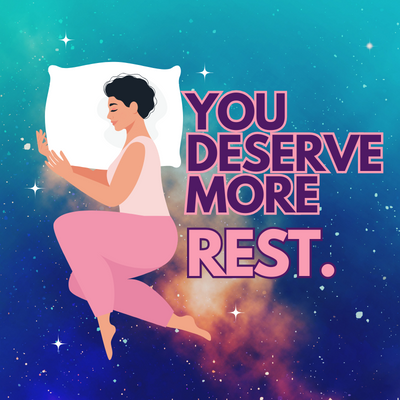
Community Captains, Organizing, Take Action
Clothing is what makes the (Hu)man; or so they say, which is why as our founder, I started TEP with a clothing swap.
I realized that clothing was one immediate form of gender expression that we have access to. Clothing amplifies outwardly the energy within our bodies. It introduces us to the world, without us having to say a word and is one of the many ways that we as humans have to connect to the world around us. Allowing us all to explore who we are, what we’re feeling, what we want to project to the rest of the world and affords comfort, especially against the elements during extreme weather.
Despite the fact that clothing is one of the most abundant resources on our planet, especially in the United States, where we are high subscribers to fast fashion, it can be incredibly difficult to access gender-affirming clothing that is affordable for our community.
From the discomfort of trying to shop in what may be an unaffirming and potentially unsafe space, to not having the cash needed to get the affirming clothing we want/need, clothing is one resource that the 2TIGE community is always in need of.
For the last few years we’ve been shipping out clothing packages to folks in need, but that’s just not sustainable!
So, now we’re asking our community members to join us in hosting clothing swaps across the country to make sure more folks get access to the clothing resources that they need.
Not only that, but clothing swaps can be a lot of fun; especially when organized with friends! We’ve had folks hold one off-events and also held them as regular functions in Knoxville, TN until COVID hit.
You can organize clothing swaps with friends or open them up to the larger community. They’re a great and affordable way for everyone in the community (including our accomplices) to come together for fun and to freshen up their wardrobes with fresh finds.
ICYMI: Clothing swaps can help protect the earth by ensuring that unwanted clothing ends up in the hands of communities who need them rather than adding to overfilled landfills!
Did you know: “It takes almost 8000 litres of water – what one person drinks in seven years – to make one pair of jeans. And when those jeans are discarded, they join the 21 billion tons of textiles that end up in landfills each year. Of 100 billion items produced yearly, 14 for each human on the planet, three in five will be discarded within the year.”(UN, 2019) & (NRDC.org, 2019)
Check out this list of: 26 Shocking Fast Fashion Statistics & Facts to Know in 2024 from YourSustainableGuide.com
Interested in hosting your own swap? Join our Community Captains Community Cohort and we’ll help you get started!

Health and Wellness
In a world that never seems to pause, the act of resting can sometimes feel like a luxury we’re not afforded. Yet, for members of the 2 Spirit, Trans, Intersex, and Gender Expansive (2TIGE) community, taking time to rest is not an indulgence—it’s a crucial aspect of self-care that fosters empowerment, resilience, and healing. Unfortunately, rest has also been historically weaponized against marginalized groups, like ours, and used as a means to diminish and control.
Understanding this context is vital in reclaiming our right to rest and prioritize our well-being.
The Weaponization of Rest
For too long, resting has been entangled with narratives that paint it as a sign of laziness or lack of ambition, especially within marginalized communities. This harmful rhetoric serves as a tactic to perpetuate cycles of exhaustion and disempowerment, making it more challenging for individuals to advocate for themselves and their community. The cruel irony is that those who most need rest to heal and fight against systemic barriers are often the ones denied it.
The Consequences of Rest Deprivation
Physical and Mental Health: Chronic lack of rest can lead to serious health issues, including cardiovascular disease, anxiety, depression, and significantly weakened immune systems. For the 2TIGE community, this adds another layer of stress to lives already navigating complex terrains of discrimination and transition-related health care.
Emotional Well-Being: Without rest, our emotional reserves dry up, making it harder to cope with stress, navigate even the most simple of daily challenges, and maintain healthy relationships. Emotional exhaustion leaves us feeling alienated and burnt out, diminishing our capacity to engage with others, even those in our support networks.
Community Impact: On a larger scale, when members of our community are too tired to participate fully in life, our collective vibrancy and activism suffer.
Rest is not just an individual necessity but a communal one, vital for sustaining the movements that propel us forward.
Rest as an Act of Resistance
In the face of narratives that seek to keep us perpetually on the back foot, prioritizing rest emerges as a powerful act of resistance. Here are a few suggestions to incorporate rest into your self-care regimen:
Listen to Your Body:
Learn to recognize the early signs of fatigue and give yourself permission to slow down. Your body’s needs are legitimate, and honoring them is the first step toward healing.
Set Boundaries:
It’s OK to say no to additional responsibilities if you’re feeling stretched thin. Setting and maintaining boundaries is crucial in safeguarding your time for rest.
Create Restful Routines:
Identify activities that genuinely relax and rejuvenate you. This could be as simple as reading, writing, listening to music, taking a walk, or practicing mindfulness. Incorporating these into your daily routine can help ensure that rest becomes a non-negotiable part of your day.
Seek Community Support:
Sometimes, the weight of the world can make resting feel impossible. In these times, leaning on your community can offer relief and strength. Remember, you’re not in this alone. At TEP we have a community Discord for clients and volunteers to better connect with one another.
Moving Forward:
The right to rest is inherent and non-negotiable, forming the bedrock upon which we build our strength, creativity, and resilience. As a community and as individuals, we must reclaim and protect this right, recognizing rest as essential to our empowerment journey.
We must commit to treating rest not as a luxury but as a critical element of our self-care and activism. By doing so, we not only nurture ourselves but also strengthen our collective capacity to thrive and affect change. The path may be long, but together, with rest as our ally, we continue to move forward towards a future where empowerment and healing are accessible to all.
At Trans Empowerment Project, we understand the pressures and challenges our community faces, and we stand firm in our commitment to support and uplift each other. We’re here to help you find the balance and the space to rest, grow, and empower yourself and those around you. Which is also why TEP has never been in the habit of sending our already exhausted community to the front lines to be targeted by the Chad and Karen at Chick-fil-h8. Not only is it not sustainable but also we don’t owe others the time and energy it takes to convince a closed mind that we deserve to exist.
We all deserve the freedom of owning our own bodies. The freedom to dream and the freedom to exist in a world not controlled by white supremacy and colonialist values but one where we all get to thrive.
For Disabled 2Spirit, Trans, Intersex, and Gender Expansive community members who are also Black, Indigenous, and People of Color, these acts of aggression are further compounded by the biases of others and systemic oppressions, which we already know were designed to keep people of color disempowered. Many of us have spent our lives fighting to survive, while being denied access to the tools and resources we need to live a basic life, let alone our best lives.
While we will always encourage our community to participate in their own liberation, especially through learning about our rights and by participating in civic engagements like casting our votes, we also strongly urge you to take care of yourselves, through practicing proper self-care habits, especially through rest.
Prioritize healing, improve your mental health, and take the time needed to rest and recharge.
Your turn! Click the button below to share your fave methods of selfcare with us!


Trans Employment Project
By: Mo Viviane (they/them), Program Manager for Trans Employment Project
As we come together to celebrate Women’s History Month, we must recognize and uplift the contributions and badassery of Trans Women and Femmes in all employment sectors!
Let’s explore the importance of bridging the wage gap, fostering equity, and taking action to create a more equitable reality for us all.
The Wage Gap: A Barrier Yet to be Overcome
The wage gap experienced by Trans Women and Femmes presents a significant barrier to financial and professional success. Studies have shown that Trans Women and Femmes have consistently earned less than their cisgender counterparts, and the disparities are even GREATER for BIPOC Trans Women and Femmes.
According to the National Transgender Discrimination Survey, Trans Women and Femmes earn an average annual income of $10,000 less than cisgender women. The HRC notates more profound pay inequities; whereas cisgender white men earn $1.00, an average of all women earn $0.84, and Trans Women earn $0.61.
The Power of Visibility & Inclusion
Increasing visibility and fostering an inclusive environment are critical steps in combatting the wage gap and building a better future. By acknowledging and uplifting the experiences and achievements of Trans Women and Femmes, we challenge stereotypes and biases while celebrating all of the contributions they bring.
Visibility also plays a crucial role in validating the experiences of Trans folks in the employment sector. Representation in the workplace benefits the individual and has a positive impact on society, breaking down barriers and inspiring others to pursue their passions and goals. Or, as wonderfully as Raquel Willis stated at the Women’s March on Washington in 2017, “As we commit to each other to build this movement of resistance and liberation, NO ONE can be an afterthought. We have a chance to be stronger and better than we ever have before – and that starts with having hard conversations and being held accountable.”
Taking Action Towards an Equitable Future
While awareness is essential, it is through action that we actively mitigate the inequities faced by Trans Women and femmes.
Let’s explore some steps we can take!
1. Implement Equitable Pay Policies: Establishing equitable pay structures that ensure Trans Women and Femmes receive appropriate compensation for their work is vital in bridging the wage gap.
2. Strengthen Diversity, Equity, Inclusion, and Belonging Initiatives: By prioritizing DEIB in all aspects of your organizations, you can create a more inclusive and supportive environment for ALL employees. It is important to ensure that BIPOC Trans Women and Femmes are at the forefront of conversations and policy changes.
3. Providing Support and Resources: Offering resources, mentorship programs, and career advancement opportunities designed to address the unique challenges faced by Trans Women and Femmes is a crucial part of action in the workplace!
- Joining Trans Employment Project: By joining Trans Employment Project as a partner or a member, you are on your way to bridging the wage gap of the Trans Women in our community. As a member, you’ll have access to tips, tricks, and skills training to up your skillset. As a partner, you can sign up to stay plugged into our work or even sponsor our work so that we can continue to move Trans Women out of crisis and into empowerment.
Addressing Anti-Trans and Anti-DEI Bills
Unfortunately, the fight for inclusivity and equity faces ongoing challenges in the form of anti-trans and anti-DEI bills. These bills seek to roll back the progress made in creating a safe and affirming place for Trans people. It’s essential to recognize and address these issues head-on and actively advocate for Trans rights.
By partnering with local advocacy organizations, engaging in educational initiatives, and voicing concerns to policymakers, we can work towards dismantling the barriers these discriminatory bills create that affect every aspect of our community.
As we dedicate Women’s History Month to honoring the achievements of women throughout history, it is time to ACT and INCLUDE Trans Women and Femmes. Together, we can bridge the wage gap, foster inclusion, and create more equitable and empowered workplaces for everyone!
To learn more about Trans Employment Project, visit our programs page: https://transempowerment.org/tep-projects/trans-employment-project/
If you are interested in receiving training from Trans Empowerment Project to level up for the Trans community, follow our training page: https://transempowerment.org/trainings/



![[Call to Action] Show Solidarity with the Unhoused](https://transempowerment.org/wp-content/uploads/2024/04/homeless-6887060_1280-1080x675.jpg)




